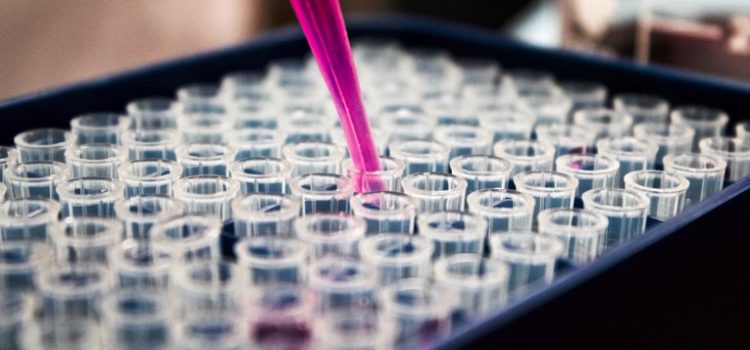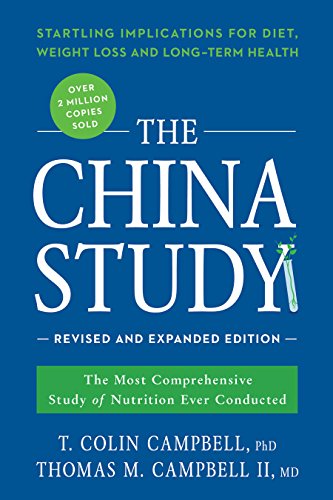

This article is an excerpt from the Shortform summary of "The China Study" by Colin Campbell. Shortform has the world's best summaries of books you should be reading.
Like this article? Sign up for a free trial here .
What is scientific reductionism? And how does it harm the public?
Scientific reductionism is the concept of simplifying complex processes in order to make them easier to research. However, it leads to a simplistic view of reality and inaccurate conclusions.
Scientific Reductionism v. Holism
In health research, more and more researchers are starting to embrace the idea of holism, which says that various nutrients work together to achieve health.
No single nutrient is responsible, on its own, for good health. The way food chemicals function in the body and the way they interact with each other are too complex to ever fully understand. The sum of all these chemicals working together is greater than the actions of each individual chemical.
When T. Colin Campbell, author of The China Study, talks about scientific reductionism, he means the practice of doctors, researchers, and reporters focusing on the health benefits of specific nutrients rather than the food as a whole.
Because the whole food is more than the sum of its nutritional parts, changing your diet one nutrient at a time isn’t going to make you healthier. You need to look at the bigger picture, your dietary and lifestyle patterns as a whole, to understand how to be healthier.
Studies or companies that zero in on one particular nutrient lead to misleading information and confusion. This is an example of scientific reductionism. You can’t isolate a chemical and then make sweeping assumptions about the food it’s in. Foods, the chemicals they contain and the way they work in the body, are too complex for that.
Two examples show the dangers of focusing on one nutrient in isolation.
Scientific Reductionism Example #1: The Marketing of Lycopene
Often, scientists will use whole foods in their research and then supplement companies will use their findings to promote a specific nutrient. Lycopene is one example of many.
In the early 2000s, studies indicated that men who ate more tomatoes and tomato products had a lower risk of prostate cancer.
Rather than encouraging men to eat more tomatoes, people in marketing zeroed in on lycopene, the carotenoid thought to give tomatoes their health benefits.
The market for lycopene supplements boomed. But later research showed that high doses of lycopene were correlated to a higher risk of prostate cancer. Researchers started warning consumers against taking them.
Lycopene on its own probably isn’t what makes tomatoes healthy. It’s the way lycopene works in concert with the other chemicals in tomatoes that gives tomatoes their health benefits.
Scientific Reductionism Example #2: The Failings of the Harvard Nurses’ Health Study
Beginning in 1976, researchers at the Harvard School of Public Health followed over 120,000 nurses, collecting data over three decades. The goal of the study was to examine the relationships of diseases with various isolated factors like oral contraceptives, cigarettes, and specific dietary items. For example, one objective was discerning a link between cancer and high-fat diets.
Results:
- Among other conclusions, the Nurses’ Health Study found no correlation between breast cancer and dietary fat, meat consumption, dairy consumption, fiber consumption, or fruit and vegetable consumption.
Problems with the Nurses’ Health Study
This study is considered one of the best of its kind, leading to associations between disease and environmental factors like smoking, obesity, and contraceptives. But Campbell believes it’s done near-irreparable damage to how we think about nutrition because it suggests no link between breast cancer and diet. They believe these misleading findings are the result of problems with the way the study was conducted. The second problem deals specifically with scientific reductionism.
Problem #1: All the nurses ate meat and dairy. Not only did they eat meat and dairy, they ate more meat and dairy than the average American.
The average American woman gets 16% of her calories from protein and 70% of her protein from animal sources. The nurses got 19% of their calories from protein and 78-86% of their protein from animal sources.
This is a problem because you can’t assess how animal foods affect cancer risk when all of your subjects are following the same diet. There was no low-animal-foods diet with which to compare the high-animal-foods diet. In other words, the researchers compared diets high in animal foods to diets even higher in animal foods.
You also can’t know how fruit and vegetable intake affects cancer risk when your subjects don’t eat much of these foods, or when their consumption of animal products may counter the effects of fruits and vegetables.
Problem #2: Scientific Reductionism—The study singled out fat.
Earlier international studies had demonstrated a relationship between fat and breast cancer mortality, so the Harvard researchers zeroed in on fat.
But dietary fat was hard to study because, in the name of health, many of these nurses ate low-fat diets. But “low-fat” doesn’t mean healthy: A person can eat a meal of roasted turkey, low-fat gravy, potatoes, skim milk, nonfat yogurt, and reduced-fat cheesecake, and consume double the protein and cholesterol as someone who eats a high-fat meal of steak, green beans with almonds, potato pockets, and apple crisp.
It’s likely that the international studies correlated fat with breast cancer risk because the countries that eat the most fat are also the countries that eat the most animal products. Usually, fat and animal foods go hand in hand. But that wasn’t the case in the Nurses’ Health Study. Nurses generally ate foods low in fat but high in animal protein.
The absence of a link between fat and breast cancer may have contributed to the researchers’ conclusion that meat and dairy, which are usually high in fat, also don’t affect breast cancer risk. Further, these assumptions also may have led to the conclusion that diet as a whole doesn’t play a significant role in breast cancer risk.
These aren’t critiques unique to the Nurses’ Health Study. Most Western studies share these problems. Their subjects all eat high-risk diets, leaving little room for comparison, and the researchers single out individual nutrients for study rather than examining the subjects’ dietary patterns.
Scientific reductionism, or reducing whole foods to their individual nutrients, can produce misleading research results.
(Shortform note: The Nurses’ Health Study exposed many critical links between disease and environmental factors—such as smoking, exercise, and diet—that were unknown or unverified before the study. Additionally, the Nurses’ Health Study is ongoing and recent findings may not reflect those cited in The China Study, which was first published in 2005 and revised and updated in 2016.)
Summary of Recommendations
Be wary of studies that examine or promote a single nutrient. This is scientific reductionism, and it’s not good science.
———End of Preview———

Like what you just read? Read the rest of the world's best summary of "The China Study" at Shortform . Learn the book's critical concepts in 20 minutes or less .
Here's what you'll find in our full The China Study summary :
- Why animal proteins (meat, milk) might cause cancer, diabetes, and other diseases
- Why the medical institution is structured to hide the truth about disease and food
- The precise diet you'll need to eat to live longer and feel happier






